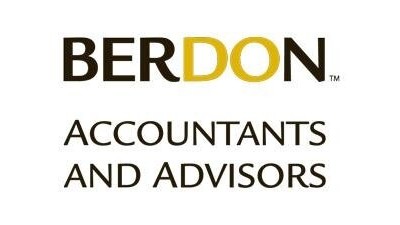The ‘Capital Improvement Trap’ Is Back In Full Force, And That Means More Audits

Picture this: an owner is renovating part of his or her building. A contractor approaches the owner and says they can release the owner from having to pay sales tax on the renovations thanks to New York’s capital improvement exemption. The owner issues an exemption certificate, and the renovations get made. Everybody walks away happy. Then comes the audit.
Michael Gelbtuch calls it the “capital improvement trap.” He sees it hundreds of times a year.
“This is one of the more tricky areas of sales tax” said Michael Gelbtuch, a tax manager at Berdon LLP. “It comes down to what counts as an exempt capital improvement versus a taxable repair or maintenance. It can get very fuzzy in there, and unless you’ve been dealing with audits for a while, you may not know what counts as what."
Since the end of the Great Recession, the construction market in New York has boomed. As buildings went up or were fixed up, contractors and landlords may have overlooked some of the sales and use tax implications of construction. Now, the state is digging after taxes that were never collected, and landlords and contractors who unknowingly fell into the capital improvement trap could be in for a visit from the New York Department of Taxation and Finance.
New York has a few quirks when it comes to sales tax. Unlike most states, New York charges sales and use taxes not only on construction materials, but on the labor of the construction itself. However, many projects are exempt from these taxes as long as they constitute “capital improvements.”
"Issuing a capital improvement certificate does not automatically exempt the landlord from owing sales and use tax," Gelbtuch said. "There’s a good faith clause that exempts the contractor from charging the tax once they receive the certificate from the landlord, but that can get fuzzy as well.”
To be considered a capital improvement, a renovation must pass a three-factor test. It must substantially add value to a property or extend its useful life; be permanently affixed to the property, such that it would cause monetary damage if removed; and be intended as a permanent installation.
Though the rules may seem clear-cut, Gelbtuch said they leave gray areas that building owners misinterpret.
“Say that you’re a landlord doing work on your HVAC system," Gelbtuch said. “If you replace your building’s whole central air conditioning system, that’s a capital improvement. But maybe you only replace the damaged exhaust fans or the internal control devices that makes the whole HVAC work. You might think that those are capital improvements, but in the eyes of the state, they aren’t."

Gelbtuch clarified that these oversights are honest mistakes; most contractors and building owners believe that they are within their rights to exempt renovations. He knows what the state deems capital improvements because he’s helped sift through hundreds of audits. However, he said these mistakes are avoidable and suggests that owners consult a tax professional before starting renovation work to avoid an invasive and expensive audit.
The “trap” is a systemic problem that has been around for decades, but Gelbtuch said he has seen a spike in these audits recently, thanks to all the new construction in the last five years and a new willingness at the state level to crack down on outstanding taxes.
Areas just outside New York City are being hit especially hard — contractors and building owners on Long Island are not as large as their neighbors in the big city, and may lack the deep tax and financial expertise that prevents investigation. For these smaller players, an audit can severely cripple their business.
Ultimately, these tax quirks are facts of doing business in New York, and building stakeholders should not expect a change anytime soon.
“More audits are a symptom of a market that’s doing more business," Gelbtuch said. "They aren’t a bad sign. Companies have to do their due diligence in this area and be prepared for an audit when and if it happens. That means talking with tax professionals before renovations and bringing tax professionals onto your side when anything does go awry.”
This feature was produced in collaboration between Bisnow Branded Content and Berdon LLP. Bisnow news staff was not involved in the production of this content.

